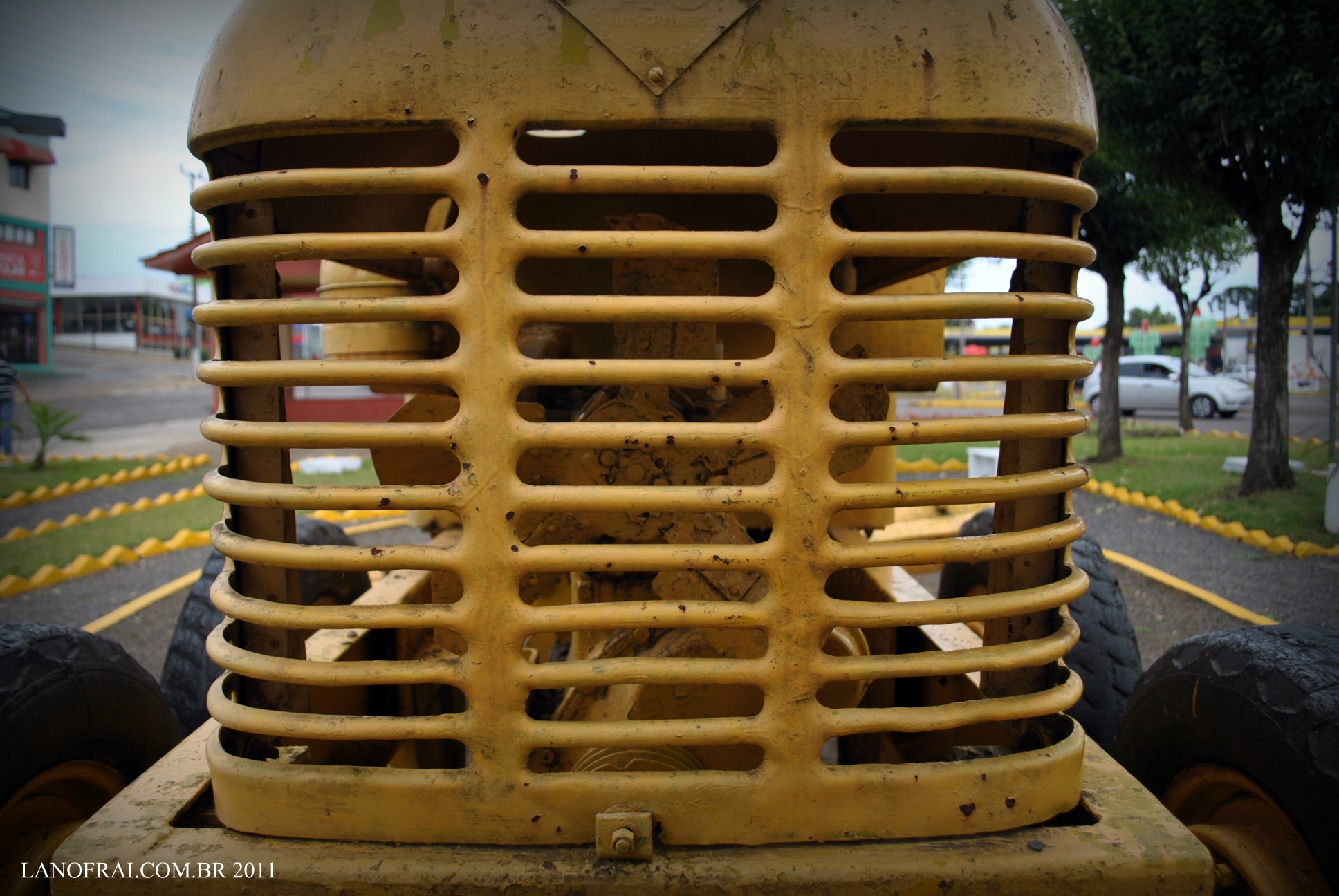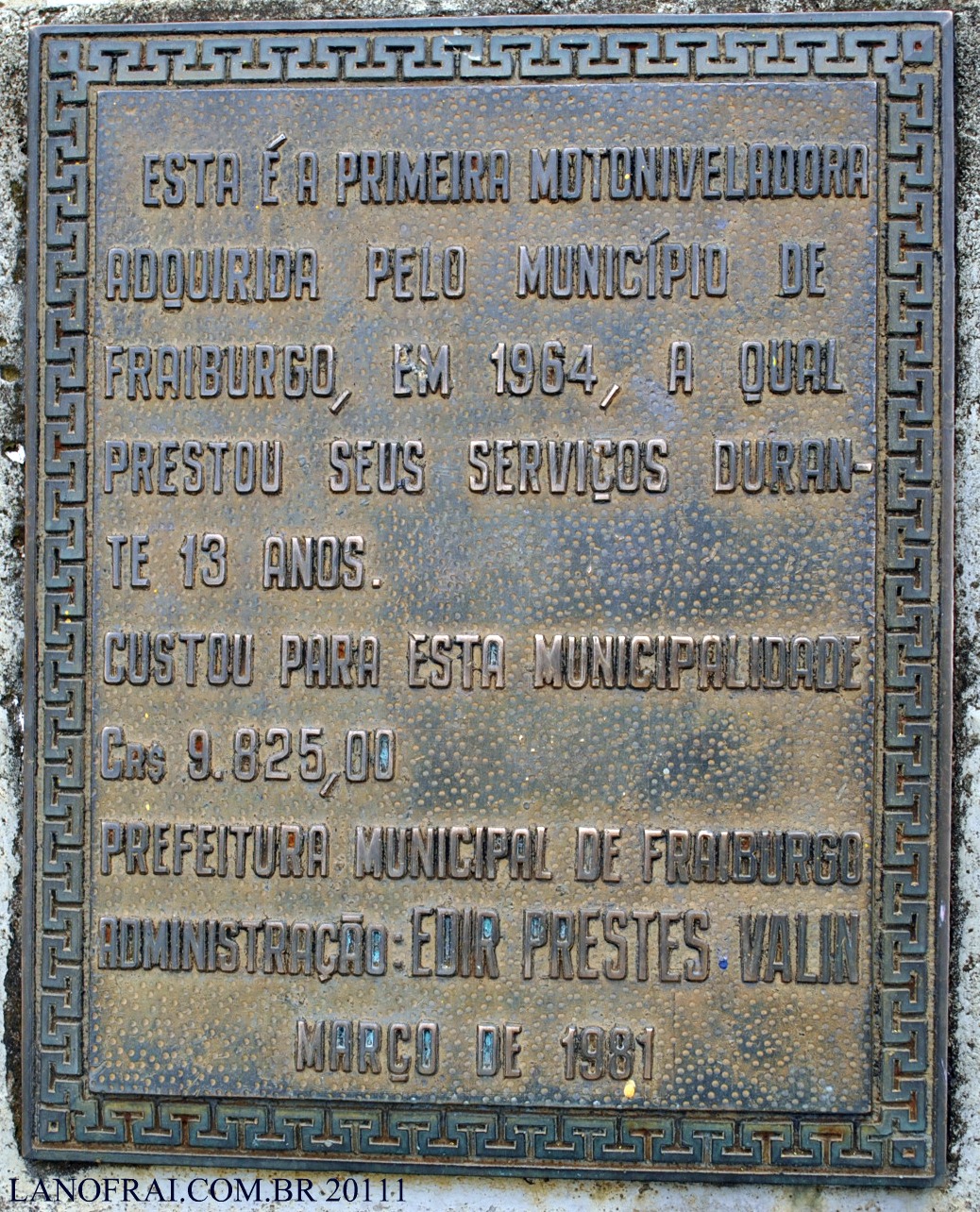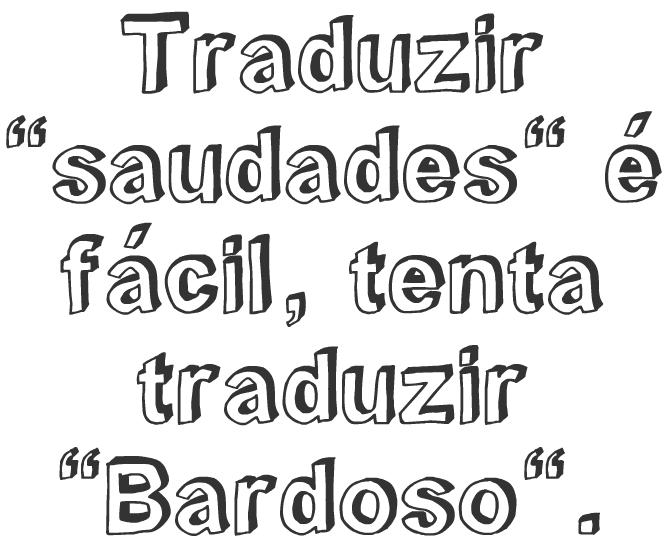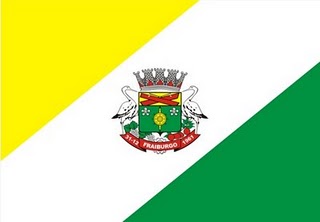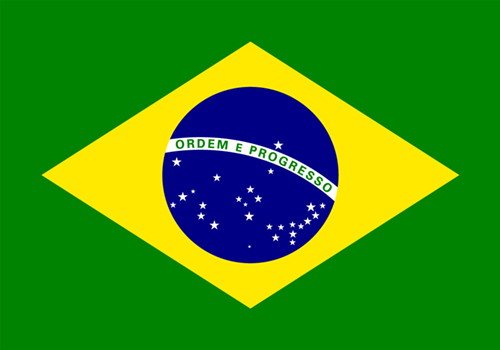The law against parents hitting their kids might not have effects in Fraiburgo. The reason? Over there, the Portuguese word (palmadas) used for this law does not exist or at least nobody has ever used in Fraiburgo. Below is a realtime dicussion on facebook with other local expressions used for parents when the kids are getting spoilt. Needless to say that we are not motivating violence, the point of discussion is why Brazil is discussing this law? Don’t we have other priorities? Still many people are thankful they parents like me for defining my limits in the course of my childhood.
Category Archives: Dialect
The Fraiburguese Dialect 02
Once a stranger has learned and incorporated the Fraiburguese dialect in its own vocabulary, he/she will perceive the world in a different way, more comprehensive and accurate. By default, when a Fraibuguese person leaves the city he/she will eventually realize the lack of accuracy of other people speeches and this is perhaps one of the greatest competitive advantages they have. Moreover, as many expressions are extremely regionalized like theses, the Fraiburgueses people end up learning new expressions while are circulating in other cultural universes, hence increasing their overwhelming cultural-vocabular repertoires. The image below show objects which can be used the the verb “open”. There fore you can open a can, a company, a scream or a cut on any part of they body. The 2 last ones are terms very specific to the region in a rather funny way.
Largando mão de 2011 fazendo 50 anos / Getting rid of 2011 reaching the 50’s.
Olá amigos,
Como muitos de vocês já devem saber, o Fraiburguense padrão ao invés de parar de fazer algo ele(a) geralmente “larga mão” de fazer algo. Nesse sentido, a cidade está largando mão do ano de 2011 ao mesmo tempo em que celebra o seu aniversário de 50 anos. Fazem algumas semanas que a prefeitura vem organizando uma série de eventos, mas infelizmente não pude estar presente. Mesmo assim, gostaria de fazer uma singela contribuição a cidade, não quero dizer “homenagem” porque aqui ela tem duplo sentido.
Dear all,
Fraiburgo is reaching its first 50 years as an official Brazilian municipality and we are very proud of it. This has been 50 years of constant changes and challenges. In the pictures below I am portraying a bit of one of the key city’s symbols. By the way, have you ever seen a monument to a grader? Yes, we do have a square dedicated for it, which is nice specially because it is not related to a war or anything like in many country and stepped in.
Well, not so long ago everything had to be started from the scratch up new roads to building the entire infrastructure to allow theses Brazilians to carry out their destiny. It seems they succeeded but at the same time new challenges lie a head and these are the questions I am asking to the people on the Portuguese text. For example, what will be the next symbol of development for the next 50 years? That is a question for the next generations.
Furthermore, congratulations to Fraiburgo and its people for everything that has been already created and I sincerely hope that the future holds beautiful things just like the city history, culture an way of life. Happy birthday Fraiburgo!
Primeiramente no seu sentido original, a palavra homenagem se refere a um agradecimento público em ato de gratidão por algum favor que fora prestado a alguém. Porém, aqui em Fraiburgo é sempre preciso tomar muito cuidado com o uso da expressão “fazer uma homenagem” porque ela pode ser facilmente entendida como “Fazer fiasco, cometer gafe, mandar mal, viajar na maionese, estragar alguma coisa e assim por diante” a pessoa que faz homenagem é chamada de fiasquenta e a que recebe “homenageada”.
Para ser pragmático vamos aos exemplos do sentido Fraiburguense.
- “Mas não me diga que os piá vão se taca lá pra fazê homenage”
- O pai chega em casa e vê o leite derramado no chão da cozinha e logo dispara – “Quem fez essa homanage?”
- Em uma conversa entre dois piá, um diz para o outro “viu, não acarque ai nesse botão pra não fazê homenage”.
Largando mão da parte linguística, segue as fotos de um dois símbolos da cidade a nossa querida patrola (moto-niveladora):
Talvez essa seja a única patrola como monumento histórico no mundo, um símbolo de progresso através da abertura de ruas e estradas em um passado distante onde até a água encanada era uma objeto de desejo das famílias. Assim, seguem algumas perguntas deve respondidas pelas próximas gerações:
- Qual será o novo símbolo de desenvolvimento de Fraiburgo para os próximos 50 anos?
- Teremos uma praça para lembrar a maçã assim que esta cultura for aposentada como a patrola?
- Qual valor que atribuímos aos nossos componentes históricos e porque eles são importantes?
- Se quisermos crescimento porque não aterramos o lago da cidade para fazer mais e mais casas? (isso era uma coisa que eu cheguei a ter medo de acontecer). Para ajudar na reflexão, queria dizer que na pracinha da patrola existem duas homenagens, a patrola em si com a placa memorial e um bar nos fundos que, com muita dificuldade, consegui excluir da foto (“quem fez essa homanage?”)
Bom pessoal, era isso. Fraiburgo chega com prosperidade ao seu primeiro cinquentenário e vamos continuar o trabalho (mesmo que remotamente) para que os próximos 50 sejam tão bonitos quanto a diversidade, a história e o jeito de Fraiburgo. Feliz aniversário Fraiburgo, o lar dos Fraiburguenses.
Traduzir “saudades” é fácil, tenta traduzir “Bardoso” / Only in Portuguese.
Apesar de ser um conceito facilmente utilizado e interpretado pelas pessoas “fraiburgófonas” (falantes do Fraiburguês), “Bardoso” é uma das palavras mais difíceis, pelo menos até agora, de traduzir do Fraiburguês para o Português, pois é um termo que remete a um estado de espírito profundo, um jeito de ser ou estar bastante comum e sem uma palavra equivalente no universo lingüístico conhecido, nem “manhoso(a)”, “dengoso(a)”, “mandrião(ona)” ou mesmo “teimoso”, juntos se equivalem a um “bardoso” bem pronunciado e contextualizado.
Pois bem, Bardoso é um adjetivo. Ex. “O piá é bardoso” ou “piá bardoso”. Raramente se vê este adjetivo flexionado no plural. Ex. “Vocês são uns bardoso”. Bardoso se refere ao sujeito do tipo tchô, tchoa (bardosa), piá ou menina que tem preferência à posição horizontal ou escorada em alguma coisa para evitar, sempre que possível, a fadiga. Estes indivíduos são otimizadores de recursos físicos por natureza, gerando quase um estilo de vida atônomo. Má vamo se combiná, quem de tanto não gostaria de levar uma vida bardosa?
Diferentemente de “dorminhoco(a)” que não se usa no diminutivo (dorminhoquinho(a)), existe o “bardosinho e a bardosinha” para indivíduos (pessoas ou animais) de pequeno porte ou muito dengosos. Ex. Um tchô pode identificar o mais preguiçoso de uma ninhada como o bardozinho – “Ó tá vendo que aquele bardozinho alí?”. Ainda, o antônimo (oposto) de bardoso é “atentado”. Ex. “Home do céu, aquele piá é atentado… dzulivre…”
Bardosos tem as seguintes características existenciais:
– Auto-estima elevada, que pode ser confundida com falta de vergonha;
– Surdez seletiva que permite ouvir apenas o que se quer e bloquear chamados;
– Preguiça ou desinteresse de fazer alguma coisa que foi ordenada;
– Jeito manhoso e dengoso (alguns casos), podendo até ser chamado de “jaguarinha” (essa é outra palavras difícil de explicar)
Bardoso não existe nos dicionários mais abrangentes da língua portuguesa, se acharam me avisem! Etimologicamente falando, o que parece, no entanto, é que antes ser definitavamente incorporado ao idioma de Fraiburgo, ele já era usado como adjetivo para os cavalos (baldoso), mas como em Fraiburgo tudo que tem “L” vira “R” temos também (culpa = curpa, malvado = marvado, folgado = forgado) e assim por diante.
De sua origem, até onde sei, existem duas frentes.
Primeira,
Eu lembro que meus primos diziam para não deixar o cavalo (petiço) comer o mato enquanto ele estivesse nos esperando, se não ele iria ficar bardoso (mal acostumado). Bardoso é alguém com barda, “não de barda para não ficar bardoso”.
Segunda,
O termo é usado para identificar qual cavalo trabalha menos e faz mais pose quando precisa puxar a carroça. Com o tempo o cavalo bardoso percebe que se ele parar de fazer força o outro cavalo fará o esforço compensatório para dar conta do trabalho, ao passo que ele só faz pose e caminha normalmente. O tchô que os coordena, por sua vez, precisa ficar de olho para o rendimento da carroça. Isso serve também para os gestores de empresas que precisam gerenciar suas empresas por indicadores ara detectar o bardosismo na empresa, o que em alguns casos pode ser contagioso. Em resumo, “bardoso é um sujeito que não se sujeita”.
Seguem alguns exemplos contextualizados:
Tentando tirar alguém da cama sem sucesso:
– “Mazé um bardoso mesmo”. Em resposta, o bardoso(a) apenas vira pro lado e continua capotado.
Negociado um grupo de trabalho na universidade.
– Vocês vão pegar o tchô tal (notoriamente bardoso) para o grupo de vocês.
Resposta
– Mas pare home!!! esse tchô é muito bardoso – Largue mão!!!
Mais exemplos? só no Frai mesmo…
Finalizando, ainda existe também o verbo “bardozear”. Ex: “Estávamos só bardozeando”
e o advérbio “bardozamente”. Ex: Eles caminham bardosamente ao redor do lago”.
The Fraiburguese Dialect 04 – O Dialeto Fraiburguês 04
From the last visit to the Fraiburgo, I dived again into its popular culture and ended up absorbing more information that I could cope with. So I still need some time to digest everything. Anyway, when I was talking to my nephew of 4 years old, who understands only Portuguese and Fraiburguese, I changed my accent to the one from Florianópolis and he suddenly changed his face and said “Stop uncle Joni, I don’t understand English” 🙂 That was so funny and real at the same time. This shows a bit how different that accents can be in speed, intonation and so on.
Nesta última visita a Fraiburgo acabei absorvendo tanta informação que está sendo um luta para destrinchar tudo, ainda vai um tempo para digerir tanta coisa, mas mesmo assim vamos lá. Quando conversava com meu sobrinho 4 anos que já se comunica muito bem em Fraiburguês, mudei o sotaque da conversa para o Manezês de Floripa e ele prontamente, após uma cara de estranheza, respondeu: “Pare tio, eu não intendo inglês”. Foi pra acabá 🙂 Realmente as diferenças são grandes tanto em sonoridade como em velocidade, mentalidade e uso de termos.
On the other interactions I had with average people, including highly specialized Fraiburgueses speakers, I could map many many new and old expressions. Sometimes, the sequence Fraibuguese words was so intense and fast that I could not even had the time to write down. Of course, some people didn’t feel like speak a lot, but after some biers, things have changed towards a fun game of cultural self-discovery. Well, bellow is the fourth page of the Fraiburguese random official dictionary.
Nas outras interações que tive, com pessoas mais especializadas no uso do Fraiburguês, pude mapear mais uma boa porção de novas e velhas expressões. Claro que as vezes a sequência era tanta que quase não tinha tempo para anotar no caderninho. Também aconteceu de algumas pessoas ficarem ressabiadas de falar, mas depois das cervejas não teve quem não entrasse na brincadeira de auto descobrimento cultural. Bom, segue a quarta página do dicionário aleatório do Fraiburguês oficial.
Contribution for this edition / Colaboradores dessa edição:
Ivadir dos Santos (my father/ meu pai), Marcos Xavier e Laís Frey.
Mapa dialetal de Santa Catarina – Santa Catarina’s dialectal map
Falando com as pessoas sobre a cultura de Santa Catarina, é muito comum ouvir algo dos manezinhos do litoral e da cultura gaúcha do resto do estado, a qual eu discordo prontamente porque apesar do chimarrão o meio oeste de Santa Catarina está voltado muito mais para o Paraná do que para o Rio Grande. Isso pode ser melhor demostrado com o mapa qualitativo dos sotaques Catarinenses. A propósito, gostaria de agradecer as pessoas que contribuíram direta ou indiretamente para chegarmos neste mapa.
If you talk about the Santa Catarinian culture it is very likely to hear about the strong influence of Portuguese fisherman in the cost and the gaucho culture in the rest of the estate. The latter case it is not necessarily true in many ways and that is what I want to demonstrate by a qualitative dialectical map below.
Ao invés de dividirmos o estado em dois, devemos olhar para ele como o estado Brasileiro que apesar de pequeno é o mais culturalmente diverso. Como resultado temos uma economia diversificada a ponto de ser o único estado que poderia existir autonomamente em relação aos recursos naturais e humanos.
In short, instead of dividing the state in two parts, people should bear in mind that although Santa Catarina is one of the smallest Brazilian states, it is the most culturally diverse. As a result, it has the most diversified economy in the country being considered the unique state that could exist autonomously.
Eu tentei desenhar esse mapa porque antes de me mudar para Florianópolis para dar continuidade aos meus estudos, eu não esperava sofrer choques de realidade tão grandes. É impressionante como as coisas podem mudar quando pulamos de uma área dialetal para outra. Na capital tive que aprender na marrar não apenas o conteúdo das disciplinas da universidade, mas também uma outra língua e ainda me adaptar com uma mentalidade diferente em relação a vida, trabalho, descanso, investimentos e etc.
I made this map because before my departure in 2001 to further my studies in Florianópolis, I wasn’t aware about the cultural shocks I would get by just crossing those different regions. It is crazy, but it is real. Besides the normal study workload at the university I also had to learn another language and adapt myself to a completely different mindset towards life, work, leisure, investments and so on.
A área vermelha é onde os tchôs e as tchoas estão no comando. Logicamente Fraiburgo está no epicentro do dialeto Fraiburguês. Vale notar que, em algumas partes, ele deixa de ser puro ao mesclar-se com o dialeto serrano de Lages e gringonês do oeste. Ainda, este sotaque está vinculado ao estado do Paraná até chegar em Curitiba como um R bem forrrrrte e a letra “E” de “gentE” sendo pronunciado como “E” e não como “I”. Sim, algumas palavras são emprestadas dos gauchês, mas mesmo assim não se utiliza por exemplo a palavra “Guri”. O correto é usar “piá ” ou “tchozinho” e assim vai…
Logically Fraiburgo is at the epicentre of the Fraiburguese dialect, which goes up north. It has some merging influences with the “Lageanês” (light blue) and the “Gringonês” (Green) but it is still predominantly self-contained. From my perspective, this region is much more connected to the state of Paraná and its capital Curitiba than to the state of Rio Grande do Sul where the gaucho culture prevails and what people claim that we tend to be gauchos.
No extremo oeste (verde), existe uma tremenda influência da colonização Italiana que chegou ao Brasil falando uma série de dialetos italianos que nem eles podiam se entender antes de usar o português. Nesse pedaço de chão a gringaiada aprendeu o português dando vida ao “gringonês” que funciona muito bem. Na outra área verde, no sul do estado, a colonização é também predominantemente italiana, mas dizem que não utilizam o gringonês puro de Chapecó. Por alguma razão desconhecida meus amigos de Criciúma, Tubarão se negam a falar comigo usando seu sotaque nativo de lá. Resultado, enquanto eu não visitar o lugar e ouvir o sotaque deles pessoalmente este dialeto é indeterminado.
In the westernmost part of the state we have strong Italian colonization and of course a strong Italian accent, which I call “Italo-Portuguese or Gringonese”. The word “Gringo” means foreigner. It is important to mention that many Italians came speaking different Italian dialects in the way they could not even understand each other before using Portuguese. The green area in the south is also Italian, but I still don’t know how they speak. As far as I am concerned, they have a different accent from the other green area. My friends from there refuse to talk to me with their original accent I don’t know why. For the time being it is classified as unidentified.
Pulando agora para a galera da área azul. Essa região é onde a cultura alemã com seu jeitão compassado deu origem a um português teutônico muito interessante, principalmente nas cidades de Timbó, Pomerode e Benedito Novo. Se tiverem a oportunidade de falar com alguém de lá, peça para eles falarem a seguinte frase. “Cara, comprei um jeep cara. É um LandRover novinho que eu uso só pra tacar nos areião” (Contribuição do Gedson Jung).
In the blue area we have a predominant German colonization that also added its contribution to change the Portuguese language, creating a sort of Teutonic Portuguese. Note that there is a clear separation from the red zone, which is somehow related to the mountains that divide these two peoples.
Finalizando, o sotaque da costa (Barriga Verde) é um português de pelo menos 500 anos. Barriga verde é um termo usado para designar os catarinenses de um modo geral no Brasil, porém, dentro de Santa Catarina esse termo é usado para o pessoal do litoral. O sotaque barriga verde tem as seguintes características:
- Soa cantado
- É muito rápido
- Frases curtas são repetidas
- É engraçadíssimo
- A conversação acontece um tom acima do tom normal.
- O tom desafina para cima no final das frases longas.
- As vogais tem um som diferente, meio fanho. Este som junto com o aumento do tom da fala da um efeito de “vogal tunada” especialmente em Florianópolis.
- A letra “R” segue o padrão francês.
- O verbos no tempo passado são – Cortasse – Trabalhasse – falasse , e etc.
- Infelizmente, está entrando em extinção devido as massas migratórias e motivos econômicos.
Bom pessoal, não deixem de comentar sobre suas experiências com relação a esse mapa para que a próxima versão seja mais precisa, eu vou continuar prestando atenção nas próximas mudanças pois é um tema no qual sou fascinado.
To conclude, the yellow accent is a 500 years old Portuguese from Azores island. The remarkable characteristics are:
- It sounds like bird singing,
- It is very fast
- They repeat a lot the short sentences
- It is very funny
- It runs one tone higher than the normal way of speaking.
- It gets out of the tone at the end of the sentence.
- It is slowly dying out due to economic and migration reasons, which is said.
The Fraiburguese Dialect 03 – O Dialeto Fraiburguês 03
Regional accents and popular expressions are like bombs of concentrated culture that throws shrapnel in all directions…
Os sotaques e expressões populares são bombas de cultura concentrada que espalham estilhaços em todas as direções…
Because google translator is not yet capable of translating Fraiburguese, I am going to translate an advanced sentence suggested by Mr. Fábio Faquin. Blue is the original sentence .
Já que o google não é capaz ainda de traduzir nosso dialeto, vou fazer uma tradução aproximada das frases enviadas pelo Fábio Faquin. Obrigado pela contribuição. Tive que pesquisar algumas palavras e peço desculpas por erros de interpretação. Se alguém quiser fazer outras interpretações fiquem a vontade para entrar na roda.
Hóme do céu…
Não da pra ficá “se bostiando”… tende juntá a “catrefada” e campiá umas palavra de “revesgueio”. Ponheiei aí… antes que alguém fique “invaretado” … É bom dar os créditos certo pra não “ingrupi”ninguém, mas sem “inticá”os piá, senão vai dá o maior “intrevero”. Vai ficá ïntuiado”de palavra.
Amigo,
Não podemos nos “dar ao luxo de não fazer nada”. Temos que reunir o “pessoal” para buscarmos outras palavras que estão por ai a nossa volta. Coloque-ás no lugar certo antes que alguém fique reclamando. É bom atribuir os créditos para que nínguem seja enganado, no entanto cuidado para não provocar nínguem se não teremos uma grande discussão. Em breve teremos muitas palavras.
Dear friend,
We can’t lose time. We have to gather the people and start searching for the words that surround us. Please, add them in the right place before somebody starts complaining. Bare in mind that it is important to give the right credits so people won’t be deceived. Watch out to not provoke anyone or there will be a discussion. Soon we will have many words.
“Má largue mão Hóme… seje bobo… Ahh se fizer frio tem que “pidi” uma “Japona”… não vai ficá pestiado… hahaha.. .Tem muitas expressões… da pra se ïntertê” tipo bixo…”
Então amigo, não percas tempo, não sejas tolo. Se fizer frio, pedirei uma jaqueta para não adoecer. Com todas esssas expressões podemos nos divertir muito!
Man, don’t be stupid losing time. If it is cold I will ask for a jacket to not get sick. With so many expressions like these we can have loads of fun!
Fraiburguese verbs
In the last hundred years the Indo-European languages have been continuously systematized to reduce the learning curve, to evolve, and, of course, to survive amongst other languages. The verbs exist in a language to indicate an action or a state of being and they were also systematized. Below there are some examples of this:
- In Portuguese and Spanish the infinitive verbs end with “AR” “ER” “IR” “OR”. E.g. To love – Amar, To speak – Hablar or Falar, To compose – compor the list goes on.
- In Italian you can take the same rule of Portuguese and add the letter “E” at the end. E.g. To love – Amare. Many verbs are similar to Spanish and Portuguese, but not all.
- In English the infinitive is “TO”- To love, to speak, to break and so forth.
- Germanic languages have “EN” at the end. In Dutch for instance “to walk” is “lopen”, to eat “eten”, to sleep “slapen”.
So how would that be infinitive verb in Fraiburgo? As far as I know, I have the feeling that we tend to take the final “R” out and transform it into an accent in the last syllable stressing it, which we pronounce in a very open way. E.g.
- To walk – Caminhar = Caminhá
- To speak – Falar = Falá
- To exchange – Trocar = Trocá
Furthermore, other strange things usually happen in the sentences created in Fraiburgo. Herein I will stick to the verbs only. In the next posts you will start noticing the emergence of these dialect patterns. Little by little you will get acquainted with the Fraiburguese dialect. I hope you enjoy and most importantly I hope you understand what I am saying… it’s been a challenge to do so but fun at the same time.
*Fonte/Source “lanofrai.wordpress.com” and colaborators
The Fraiburguese Dialect 01
In the last 100 years, the region where Fraiburgo is located has witnessed people communicating in at least six languages (Portuguese, Italian, German, Polish, French and Tupi-Guarani). Nowadays what we have is a consolidation of the Portuguese with an increasing English influence. Portuguese is similar to Spanish, which is a kind of Portuguese with a funny Maradona accent and a different grammar hehe.
In Fraiburgo the official language is Portuguese however, every time I visit the city I have some reverse cultural shocks regarding to the language when I hear my own dialect, which is funny. In fact, there is a huge gap between the official Brazilian Portuguese and what they speak there (Fraiburguese). This post is an attempt to show a bit some characteristics of our dialect. If you know some Spanish you might be able to read some of our words. If you don’t, it is still interesting to see that many Portuguese words are virtually the same as English because of their Latin base (See around the blog).
Observations
- The Fraiburguese dictionary that is being developed is composed of words and expressions that take place randomly without any sort of classification just as it happens in the reality of an average person from Fraiburgo.
- The Fraiburguese dialect is shared amogst other cities in the southern region, however, there might exist expressions that are well understood nation-wide. Only with evolution of this project we will be able to spot what is exclusively from Fraiburgo.
- In Fraiburgo we drink the traditional mate “Chimarrão”, which is predominantly from the Gaucho culture, nonetheless the accent is not similar to gaucho accent.
- Fraiburgo, likewise the rest of the country, has several social classes and races which generates a great degree of vocabulary variation.
- This blog will always be a subject of changes and grammar improvements.


